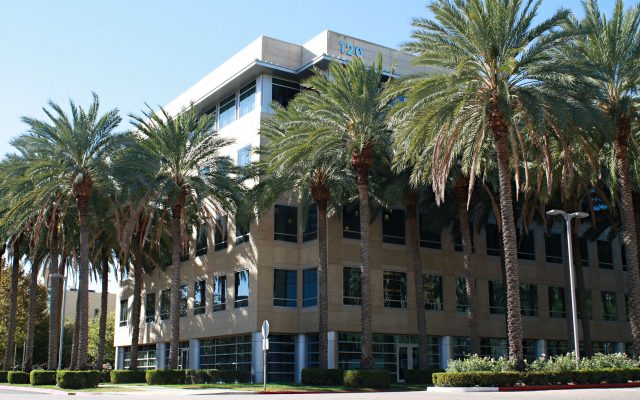Probate Lawyer Mission Viejo, CA

Heritage Law, LLP offers dependable and cost-effective counsel for trustees, executors, administrators, guardians, conservators, and beneficiaries. Our Mission Viejo, CA probate lawyer represents both local clients and clients from other states with California probate responsibilities. Read on for information about the process of probate, and to learn how our probate lawyers provide assistance to clients who have probate responsibilities.
What is Probate?
In California, probate is a process established for the orderly administration of a decedent’s estate. When a person dies without any estate plans in place, or with only a will established, their assets must be accounted for through the process of probate. Probate helps ensure that all unaccounted assets are managed and distributed in accordance with local and state law.
Named executors vs. personal personal administrators
The named executor, when there is a Will, or the personal administrator when there is no Will, has many responsibilities during this process, which can be longer and more complicated than most would imagine. Additionally, family members may step forward to contest the Will in front of the probate court if they believe they were wrongfully disinherited or had other issues with the Will.
The probate process is generally considered to be long and more complicated than one would expect. Typically in this process, there is either what is referred to as a named executor when a will was established prior to the death of the decedent, or a personal administrator when there was no Will established. In these roles, there are many responsibilities that must be carried out before a resolution can be reached within the estate.
Contesting a will in Probate Court
Another scenario clients have hired a probate lawyer is when family members have stepped forward to contest the Will in front of the probate court if they believe they were wrongfully disinherited or have other disagreements with the Will as it stands. A probate lawyer may provide counsel individually to either side of the involved parties.
Probate Court Basics
- The Probate Court deals with legal issues such as inheritance, guardianship and wills.
- Probate lawyers are often hired to administer and assist in efficient navigation of local probate courts.
- Probate court cases may be heard with or without a will.
- In the presence of a will, the probate court is responsible for determining the authenticity of the document and the mental stability of the person who signed it.
- Without a will, typically the probate court distributes the property of the deceased among his next of kin.
Out of state probate responsibilities
Out of state residents with California probate responsibilities should consider hiring legal counsel from a probate lawyer who has experienced navigating the probate process in the state where the responsibilities reside. The advice of an experienced probate lawyer will help make the execution of the steps involved in the probate process as efficient as possible, and will be able to offer individualized direction based on your families specific needs.
Seven Ways To Avoid Probate
Give Gifts
You can reduce the size of your estate, and shorten the probate process if you give gifts of property or cash to your heirs. Keep in mind the gift tax, which currently applies to gifts of $15,000 or more. Your Heritage Law, LLP probate lawyer in Mission Viejo, CA, can help you plan such gifts.
Create Living Trusts
Living trusts are probably the most well-known means of avoiding probate. You can put your home, vehicles, financial accounts and more inside a living trust. You just have to remember to re-title everything in the name of the trust, instead of leaving it in your name. That way, when you die, your successor trustee takes over administering the trust when you die and can transfer ownership to the beneficiaries you named. Living trusts are easy to set up with the help of a probate lawyer in Mission Viejo, CA.
Establish Joint Ownership Regarding Real Estate
There are three types of joint ownership when it comes to real estate:
- Joint tenancy with rights of survivorship: The title to the property automatically passes to the other owner when one passes away.
- Tenancy by the entireties: This may be available in your state; this is the same as joint tenancy with rights of survivorship, but it only applies to married couples.
- Community property:. This is only available if you are married and live or own property in one of the states that allows for this..
There is a drawback to joint ownership. The other owner has just as much right as you to do whatever he wishes with the property.
Form Joint Ownership With Survivorship for Other Property
Any property you own can be titled with joint ownership with survivorship. Some examples include cars, boats, financial accounts and securities. Your heritage Law, LLP probate lawyer in Mission Viejo, CA, can help you set up these joint ownership accounts.
Set Up Transfer-on-Death Stocks and Bonds
Stocks, bonds and other securities may be set up as transfer-on death securities. This allows you to control these financial accounts for as long as you live, without worrying about what a joint ownership may mean.
Fill Out Transfer-on-Death Papers for Motor Vehicles
Transfer on Death for motor vehicles is permissible in several states, including California. The DMV should have the papers you need to sign to complete a transfer on death title. This will allow your designated beneficiary to take immediate possession of the vehicle upon your death.
Enact Pay-On-Death Financial Accounts
For your bank and retirement accounts, you can designate a pay-on-death beneficiary. This avoids the chance that your beneficiary could spend down everything in the account if it’s held in joint ownership.
Heritage Law, LLP provides the knowledge and experience to make the probate process, including conservatorship and guardianship proceedings, as efficient as possible for family members, potential heirs, and executors of wills.

